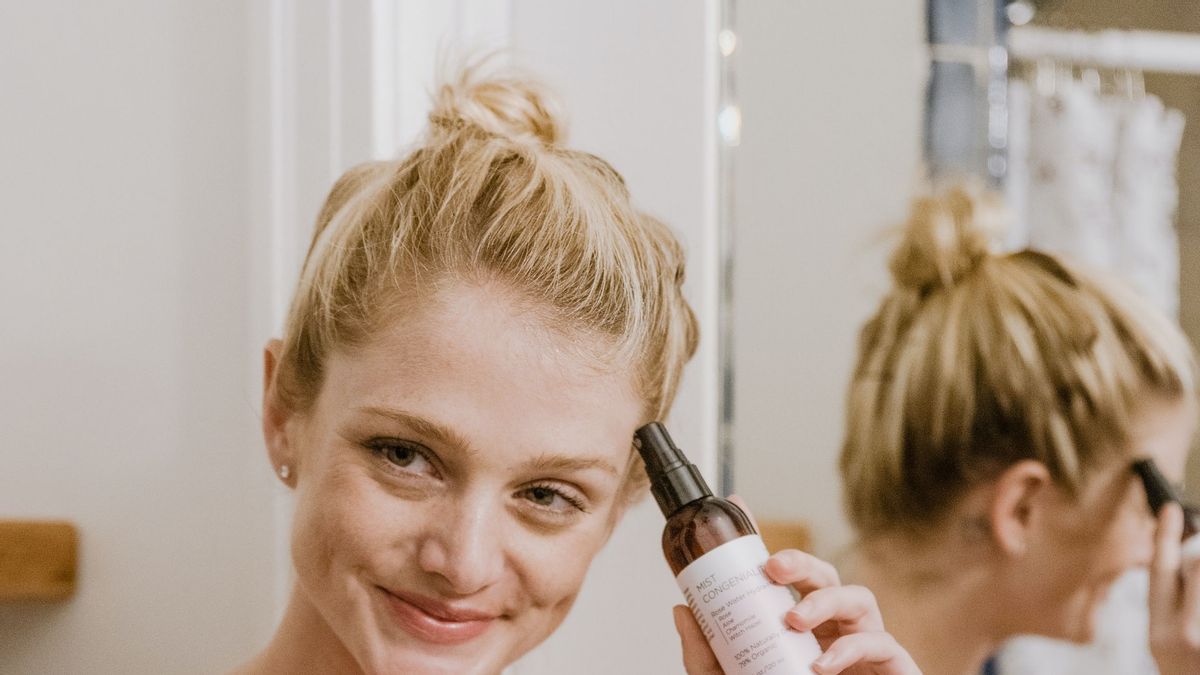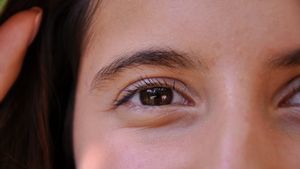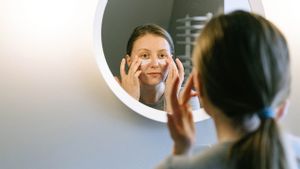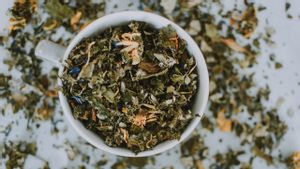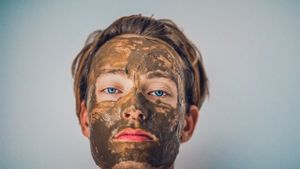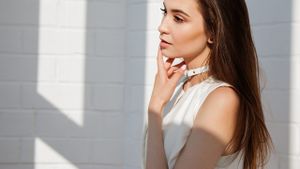JAKARTA - There are several types of alcohol formulated in skincare, the benefits can moisturize but it can also be the opposite, making the skin dry. By type, alcohol has a safety measure when used for skin care, especially for facial skin.
Alcohol in skincare products has a purpose when formulated. As found in lotions, perfumes, shampoos, moisturizers to mouthwash.
Alcohol by definition from the US Food and Drug Administration (FDA) is a chemical that each type causes different effects on the skin. Reporting by Everyday Health, Tuesday, May 25, Lauren Fine, MD, a certified dermatologist at Chicago Cosmetic Surgery and Dermatology, explains.
"There are a number of reasons why alcohol is added. Alcohol will make the product feel more elegant and lighter, and can also enhance the overall taste of the product by making it absorbed faster".
Alcohol also serves as a preservative, although it is not the main preservative. The types of alcohol in the following skincare are often found on the composition label.
Ethyl Alcohol
Ethyl alcohol is known as ethanol or according to the FDA is called whole grain alcohol. This type of alcohol is denatured making it possible to be used in cosmetic products.
Denatured alcohol
Unsaturated alcohol or alcohol is used to avoid paying taxes on alcohol in cosmetics. A cosmetics company will change the properties of alcohol so that it has other names including methyl alcohol and SD alcohol with codes 3-A, 30, 39-B, 39-C, 40-B, and 40-C.
SEE ALSO:
Isopropyl alcohol
Isopropyl alcohol is used in products for nails, hair, and skincare. It functions as an astringent, antifoaming, and solvent.
Methyl alcohol
Methyl alcohol or methanol, as described in the second type of alcohol in skincare products, is alcohol that is changed in nature.
Benzyl Alcohol
This type of alcohol is natural and is found in fruits and teas. Benzyl alcohol is a composition of soaps, cosmetics, cleansers, and hair care products.
Cetyl, stearyl, Cetearyl, or lanolin alcohol
Unlike the type of alcohol in previous skincare, this type according to the FDA is called fatty alcohol. You can find this type of alcohol in hair conditioner products, foundation, eye makeup, moisturizers, and skin cleansers.
The function of this latter type of alcohol helps moisturize the skin. When involved in the formulation process, serves to prevent oil and liquids that can separate.
The pros and cons of alcohol's benefits and effects are actually based on the different skin conditions. Gretchen Frieling, MD, a certified dermatologist in Wellesley, Massachusetts, said that alcohol can reduce oil buildup and dissolve dirt on the face.

More specifically, Dr. Frieling explained, for very oily skin using alcohol-based toner can help reduce sebum that makes pores clogged. But for those with dry skin, sensitive skin, eczema, and allergies, alcohol-based toners make the skin dry.
For normal skin types, skincare products that use alcohol may not be a problem, according to Dr. Fine. Frieling also recommends choosing the lowest alcohol concentration listed on the composition label.
If possible, avoid using alcohol-containing products of ethanol, methanol, ethyl, isopropyl, and benzyl. To avoid it may be very difficult, Frieling said, but choosing which composition suits the skin condition is the wisest advice.
Lastly, you may often find 'paraben' ingredients, such as methylparaben and butylparaben. These ingredients are usually found in products that wear fragrances. If without fragrance, it will be found on the packaging label with the inscription fragrance-free.
The English, Chinese, Japanese, Arabic, and French versions are automatically generated by the AI. So there may still be inaccuracies in translating, please always see Indonesian as our main language. (system supported by DigitalSiber.id)
